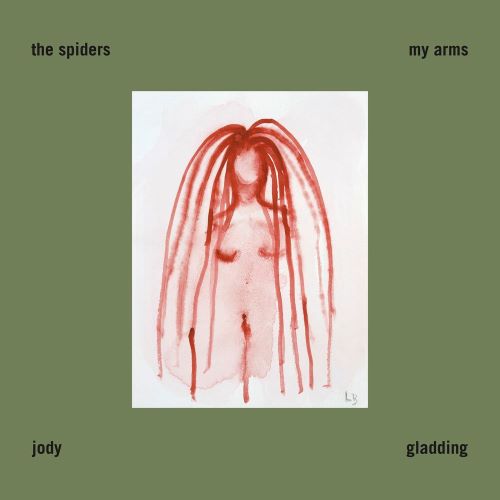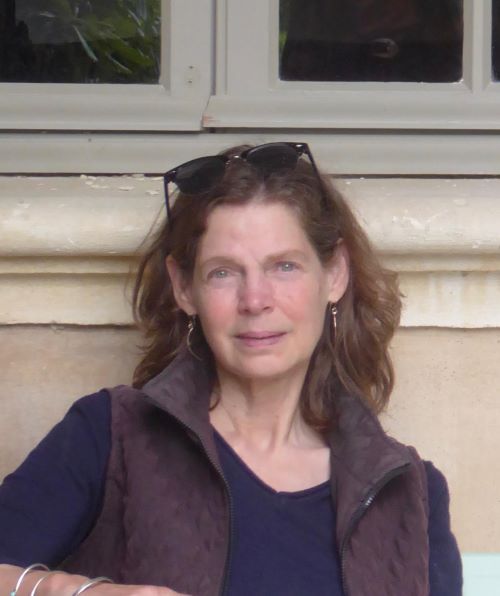The “she” in this poem appears repeatedly throughout the spiders my arms (Ahsahta Press, 2018), first on the book’s cover in the Louise Bourgeois painting Femme, where the red lines spouting from the woman’s head could be blood, hair, appendages (arms? legs?), spider silk, or simply red paint—are all those things at once. There is no right reading.
She pieces together her joy. She threads through old growth. She is remnant species. She is an artist. She is one who looks knowingly upon complex modern machinery as a joyous substitute. She don’t look back.
She is first woman, who wanted ears. So the whorls of her vulva flared from her temples. Why women are good listeners.
She wears a red dress in one poem, a blue frock in another. Only it’s a blue f/rock. It’s her red dress. She sorts her buttons. She absorbs the sun—
—
In the first issue of ecopoetics (winter 2001), editor Jonathan Skinner writes about two facts that “irremediably changed, and complicated, the writing of poetry for me.” First is the discovery of a “formally resistant poetry,” a line traced through Dickinson, the French symbolists, American modernism, the Objectivists, the Black Mountain School, the New York School, and language poetry. Speaking for his generation (born in the second half of the last century), Skinner writes, “once the bubble of voice, narrative, and image had been burst, it was nearly impossible to go back, at least not without a renegotiation of the frames.”
Second is witnessing first hand (he lived 25 miles from Los Alamos) the degradation of “open space” by the forces of capitalism (big oil, wholesale development, the nuclear-weapons industry…) waging “a relentless war on the planet.”
Together these facts gave rise to ecopoetics, a journal that, for a decade, encouraged radical questioning of poetic conventions, attention to the altered ecosystems of which we are a part, and actually spending time outside (“I try never to write a poem without taking one, or several, walks.”). A landscape practice responsive to its (our) degradation; a resistant, material language taking on a life of its own.
Today the parameters of ecopoetry have shifted, but the war continues, the planet is losing, and Jonathan Skinner’s original question, posed a quarter century ago, “what use, then, for poetry in this moment?” remains—
—
An artist starts from the selvage. Selvage—an outer, peripheral part, an edge (as of paper or fabric) meant to be discarded, a narrow boarder, sometimes of a different weave, so finished as to prevent raveling. From self+edge. She starts from her self-edge.
Only it’s not “an artist starts” in the poem. It’s:
an
artistarts
and there are no lines, only a kind of web of words radiating from the she, lightly binding her to the page.
Released from the bubble of voice, narrative, and image, words animate space differently—the degraded “open space,” the space of the poem. They inhabit it, root, and evolve there. Perhaps they have always done so, they just needed to be freed from lineation and author/ity to make that clear. These are not my own words. They refuse ownership. You can read them any way you like.
She keeps turning up. Unhinging the in-/out- doors. Patching together blue sky. Tending the icebergs. Wrenching free from her mother tongue, all meaning unbound—




